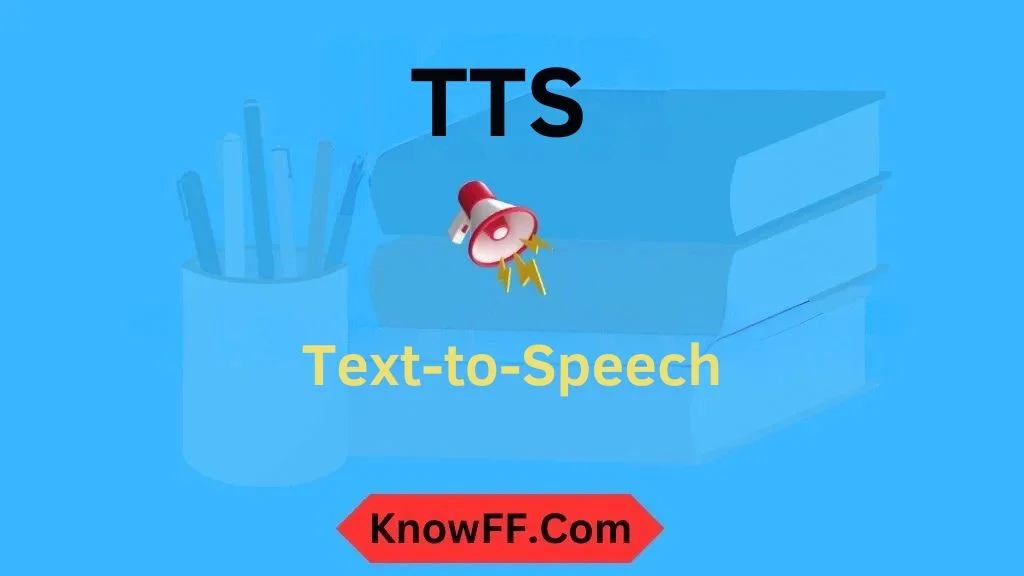In today’s fast-paced digital world, abbreviations and acronyms dominate online communication.
One such term that frequently appears in texts, chats, and social media is TTS. Many users encounter it and wonder about its meaning, origin, and proper usage.
Whether in casual conversations or professional settings, understanding TTS meaning in text is crucial to avoid miscommunication.
People search for this term not just to decode a message but also to stay updated with online slang, abbreviations in apps like WhatsApp, Instagram, and TikTok, or even in specialized professional fields.
In this article, we will explore the full scope of TTS, its usage, misconceptions, and how it differs from similar terms, giving readers a comprehensive guide to confidently interpret and respond to it.
Meaning & Definition
The acronym TTS typically stands for “Text-to-Speech”. It refers to a technology that converts written text into spoken words using computerized voices.
In digital communication, it can also represent other meanings depending on context, but the primary and most widely recognized definition relates to audio rendering of textual content.
Text-to-speech is widely used in smartphones, computers, accessibility tools, and AI-driven applications to assist users in listening to written content instead of reading it.
In texting and casual conversations, TTS meaning in text often refers to someone indicating that they are using a voice-to-text feature or sharing that the message can be read aloud using software.
Background
The development of TTS technology dates back several decades, originating in the 1950s when basic speech synthesis systems were introduced.
Over time, these systems evolved with artificial intelligence and natural language processing, becoming more accurate and realistic. Today, TTS is integrated into digital assistants like Siri, Google Assistant, and Alexa, as well as accessibility tools for people with visual impairments or reading difficulties.
As digital communication expanded, the abbreviation TTS naturally migrated into chat and social media conversations, highlighting a fusion of technology and everyday language.
Usage in Different Contexts
TTS meaning in text can vary slightly depending on the environment:
- Chat & Social Media: Users often use TTS to indicate they are sending a message through text-to-speech apps or to show that they read a message aloud.
- Professional Fields: In tech, healthcare, and education, TTS is crucial for automated readings, tutorials, and communication tools.
- Content Creation: Streamers, podcasters, and video creators use TTS to narrate content efficiently.
The acronym is versatile but always conveys the connection between text and audio.
Meaning in Chat, WhatsApp, Instagram, TikTok
On messaging platforms and social media:
- WhatsApp & Messenger: TTS often signals that the sender used text-to-speech or is sharing information that can be read aloud.
- Instagram & TikTok: Creators may use TTS features to convert captions into voiceovers for videos.
- Casual Chats: Sometimes, users simply type “TTS” to show that they want a message read aloud or are using a voice-generating tool.
Meaning in Physics, Medical, and Aircraft Terminology
While TTS is widely known as text-to-speech, in professional or technical contexts, it can have different meanings:
- Physics: TTS might refer to Time-Temperature Superposition, a method used in material science.
- Medical: In healthcare, TTS can mean Transcutaneous Thoracic Stimulation, a procedure for certain treatments.
- Aviation: Pilots may encounter TTS as Takeoff Thrust Setting, related to aircraft operations.
Understanding the context is critical to avoid misinterpretation.
Common Misconceptions
Many people assume TTS always means text-to-speech, but as highlighted, its meaning can vary depending on the platform or field.
Another misconception is that TTS messages are robotic or impersonal, whereas modern AI voices are often highly natural. Misunderstanding TTS can lead to confusion, especially in professional or technical discussions.
Similar Terms & Alternatives
Some related acronyms and terms include:
- STT (Speech-to-Text): Converts spoken words into written text.
- VRS (Voice Recognition Software): Detects and processes voice commands.
- AI Narration: Similar to TTS but often used in multimedia content.
Choosing the right term ensures clarity in communication.
How to Respond to It
When someone uses TTS in text:
- Clarify the context: “Are you referring to text-to-speech?”
- Engage politely: Respond to the message as intended, whether it’s audio-generated or typed.
- Use emojis or short replies to acknowledge the use of TTS in casual chats.
Differences from Similar Words
Unlike STT (Speech-to-Text) that converts voice into text, TTS transforms text into audio. Other terms like “voice note” imply manual recording, while TTS is automated. Recognizing this distinction ensures proper usage in online and professional communication.
Relevance in Online Conversations & Dating Apps
In dating apps or casual messaging, TTS meaning in text is increasingly common:
- Users may send TTS-generated messages for fun, creativity, or accessibility.
- It can make conversations dynamic and playful by adding a vocal dimension.
- Understanding TTS ensures users interpret messages correctly, avoiding confusion in digital relationships.
FAQs
What does TTS mean in texting?
It usually stands for Text-to-Speech, converting written messages into audio.
Is TTS the same as STT?
No, STT is Speech-to-Text, while TTS is the opposite, converting text into speech.
Can TTS be used on social media?
Yes, platforms like TikTok and Instagram often use TTS for voiceovers in videos.
Does TTS have medical uses?
Yes, in medical terms, it can mean Transcutaneous Thoracic Stimulation in certain procedures.
How do I know which TTS meaning applies?
Context is key—look at the platform, conversation, or field being discussed.
Is TTS technology accessible for everyone?
Yes, TTS is widely used in accessibility tools for reading assistance.
Conclusion
TTS meaning in text primarily refers to text-to-speech technology, a tool that converts written content into audible words.
Its applications span casual texting, social media, professional fields, and accessibility tools, making it a versatile and relevant acronym in modern communication.
While commonly used online, TTS also holds specialized meanings in physics, medical, and aviation contexts.
Understanding its various uses, misconceptions, and alternatives allows individuals to navigate conversations more effectively, whether in casual chats, professional communications, or digital content creation.
Staying updated on acronyms like TTS enhances clarity, efficiency, and engagement in the increasingly text-driven digital world.











